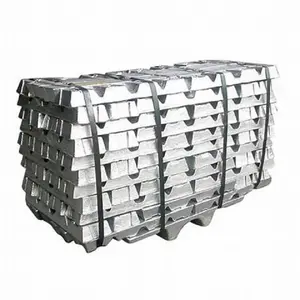
Vinchy Condoms for men from natural rubber latex form Thailand and Hot sale best quality wholesale price direct factory



















In an era where supply chain efficiency is not just an advantage but a necessity, factory direct wholesale emerges as a transformative strategy for businesses. This guide delves into the intricacies of streamlined sourcing, offering a comprehensive look at how direct partnerships with manufacturers can redefine procurement. From the critical role of platforms like Alibaba.com in fostering these relationships to the diverse range of products available, we explore how direct sourcing can lead to cost savings, enhanced efficiency, and a more responsive supply chain. As we navigate through the benefits and practical applications across various industries, this article aims to equip businesses with the knowledge to unlock the full potential of factory direct wholesale.

The concept of factory direct sourcing has become increasingly significant, especially in scenarios where supply chain disruptions are prevalent. An approach that has proven effective involves establishing direct-to-manufacturer partnerships. This strategy allows for a more streamlined procurement process, ensuring access to necessary items, such as personal protective equipment (PPE), which became critical during global disruptions. By engaging directly with producers, organizations can significantly reduce lead times, enhance efficiency, and achieve cost savings.
Direct sourcing capabilities are essential for aligning procurement strategies with the overarching goals of cost management, quality assurance, and outcome optimization. The ability to source directly from factories empowers businesses to maintain a steady flow of supplies, which is crucial for operational continuity. It also enables a more responsive supply chain that can adapt to fluctuating demands and market conditions, ensuring that essential workers remain equipped with the necessary tools to perform their duties safely and effectively.

Alibaba.com plays a pivotal role in facilitating streamlined sourcing for businesses worldwide. By offering a platform where suppliers are verified, it instills a level of trust essential for global trade. The verification badge on a supplier’s profile is a fundamental assurance of their credibility, which is crucial when engaging in factory direct wholesale transactions. Furthermore, Alibaba.com provides tools for businesses to communicate effectively with suppliers despite language and time zone differences, ensuring clarity in negotiations and operations.
The platform also encourages competitive pricing by allowing buyers to easily compare costs and engage with multiple suppliers. This competitive environment can lead to more favorable terms for buyers, which is particularly beneficial in the context of factory direct wholesale. Alibaba.com's infrastructure supports not just price negotiations but also discussions around other value-adding factors such as payment terms, shipping speed, and product customization, which are all important when sourcing products directly from factories.
In addition, Alibaba.com's ecosystem is designed to support buyers in becoming ideal clients for suppliers. By fostering good purchasing practices, such as timely payments and clear communication, buyers can position themselves to negotiate better deals and build strategic partnerships with suppliers. This relationship-building is a cornerstone of effective sourcing on the platform and is integral to the streamlined procurement process that Alibaba.com facilitates.
The wholesale market offers a diverse array of products suitable for factory direct wholesale. Among these, print media such as books, magazines, and comics are notable for their universal appeal and ease of distribution. Food and grocery items, particularly those that are shelf-stable, present a significant opportunity for wholesalers due to their extended shelf life and ease of storage.
Entertainment media, including movies and CDs, cater to a vast audience of enthusiasts for older films and music, suggesting a steady demand. Clothing, jewelry, and footwear, despite the competitive market, remain staples in the wholesale industry. Children's products, including toys and games, benefit from the constant demand driven by the ever-growing population of new parents seeking these items.
Electronics, gadgets, and digital accessories are increasingly sought after as consumer reliance on technology grows. Outdoor goods, sports equipment, and leisure items show seasonal sales spikes, indicating the importance of timing in marketing strategies. Additionally, computers and laptops, often available from discontinued lines or as cost-effective options, can be a lucrative addition to a wholesaler's electronics offerings.
Gifts, holiday goods, and home accents cater to a market with diverse retail opportunities, from gift shops to independent retailers. Automotive and motorcycle parts and accessories serve a niche of enthusiasts and professionals alike, with a consistent demand for upgrades and maintenance. Lastly, auxiliary parts and add-ons, such as phone accessories, tap into the vast market of smartphone users seeking to enhance their device's functionality.
The wholesale industry is undergoing significant changes due to technological advancements and evolving market dynamics. Disintermediation is one such trend where manufacturers and retailers are increasingly bypassing traditional wholesalers, opting to work directly with each other. This shift is prominent across various sectors, with companies leveraging e-commerce to directly distribute parts, thereby increasing their market share. Similarly, the influence of e-commerce platforms has led to heightened customer service expectations, with businesses demanding wholesale distributors to provide rapid shipping and responsive customer service akin to retail experiences.
Technological innovations are also reshaping the wholesale landscape. Automation, AI, robotics, and drones are being employed to enhance fulfillment processes, reduce labor costs, and minimize workplace injuries. Such technologies are not only transforming operations but also influencing the types of products available for wholesale. For instance, automated warehouses are capable of handling vast order volumes with efficiency, catering to a wide range of industries. The adoption of these technologies reflects a broader trend towards a more efficient, tech-driven approach to wholesale distribution, impacting various industries from manufacturing to retail.
Buying directly from the factory offers distinct features that benefit businesses in various ways. One of the primary features is cost-effectiveness, as it removes intermediaries from the purchasing process, leading to potential savings. This approach can allow for reinvestment in other business areas or improve profit margins.
Another feature is the enhanced control over the supply chain. Direct purchasing from manufacturers provides businesses with the opportunity to select their partners and oversee the manufacturing process closely. This can minimize potential disruptions and ensure timely delivery, which is crucial for maintaining business operations and customer satisfaction.
Additionally, the direct purchase often means access to products that can be tailored to specific business needs. Manufacturers may offer customization options, which can result in savings on unnecessary materials and labor, and ensure that the final product fits the intended purpose precisely.
Lastly, engaging in factory direct purchases can lead to stronger relationships with suppliers. Direct communication with manufacturers can facilitate better negotiation terms and foster long-term partnerships, which can be advantageous for both product quality assurance and potential future transactions.
When considering factory direct sourcing, material considerations are paramount. Direct materials, those used in the production of goods, significantly influence the cost structure and competitive advantage. The quality of these materials directly affects customer satisfaction and innovation potential. For instance, in manufacturing, the materials represent a substantial portion of the total spend, reflecting their importance in the pricing and quality of the final product.
The quality of direct materials sourced impacts the end product, necessitating a focus on quality management practices. These practices will vary depending on the material type and industry, such as food safety audits for food products or durability tests for automotive components. The procurement process for these materials can be complex, involving global suppliers and requiring careful forecasting and logistics.
In factory direct wholesale, the categorization of direct materials is specific to the industry and organization, influenced by the nature of the end products. For example, automotive materials will differ from those in pharmaceuticals or food industries. Understanding these nuances is crucial for businesses looking to leverage the platform for factory direct wholesale, ensuring they source materials that meet their specific production requirements and maintain high standards of quality.

One of the main advantages of factory direct wholesale is the access to more affordable pricing by eliminating intermediary fees. This direct relationship with manufacturers can offer competitive market advantages and may allow for flexibility in order quantities, sometimes bypassing minimum order quantity requirements.
Establishing a solid relationship with manufacturers can lead to increased flexibility in product customization. Retailers can request branding changes, design alterations, or even the development of innovative products, providing an edge over competitors.
For retailers interested in launching new products, working directly with manufacturers can facilitate the creation of prototypes. This enables thorough testing and market research, reducing the risks associated with introducing new products.
Manufacturers may also offer reduced production times, which can result in shorter lead times and faster shipping, saving both time and money. This efficiency in manufacturing processes can be a significant advantage for retailers looking to maintain a competitive edge in the marketplace.
Quality control is a pivotal element in the logistics and sourcing of factory direct wholesale products. It involves rigorous inspection points throughout the production line to ensure that only products meeting the required standards proceed to the next phase or distribution. This systematic evaluation helps in identifying and rectifying defects early, preventing substandard items from reaching the market.
In the context of factory direct wholesale on platforms like the marketplace, understanding a supplier's approach to quality control is crucial. It reflects their commitment to maintaining product consistency and reliability, which in turn, builds consumer trust. A supplier's total quality management (TQM) policy can often be found in public reports, offering insights into their quality control practices and how they manage variances in materials or labor.
Effective quality control policies help in pinpointing the exact stage of production where issues may arise, whether in assembly or packaging. While establishing multiple inspection points can be resource-intensive, it is a strategic investment that can lead to significant cost savings by reducing the likelihood of returns or legal issues due to faulty products. For supply managers, a basic understanding of these quality control concepts is essential for effective product sourcing and ensuring the credibility of the products they choose to distribute.
Factory direct wholesale represents a strategic pivot in modern procurement, offering a plethora of advantages that can significantly bolster a business's competitive edge. Through the platform, companies gain access to a trusted network of manufacturers, competitive pricing, and the ability to customize products to meet market demands. The diversity of products available, coupled with the potential for innovation in sourcing materials, provides a robust foundation for businesses to thrive in various industries. Quality control remains a cornerstone of successful sourcing, ensuring that products meet high standards before reaching consumers. As businesses continue to adapt to a rapidly changing economic landscape, embracing factory direct wholesale via platforms like the marketplace can lead to more than just cost savings—it can foster long-term partnerships, drive innovation, and ultimately, ensure customer satisfaction and loyalty. In conclusion, the strategic benefits of factory direct wholesale are clear, and with the right approach, businesses can unlock a new level of sourcing efficiency and market responsiveness.